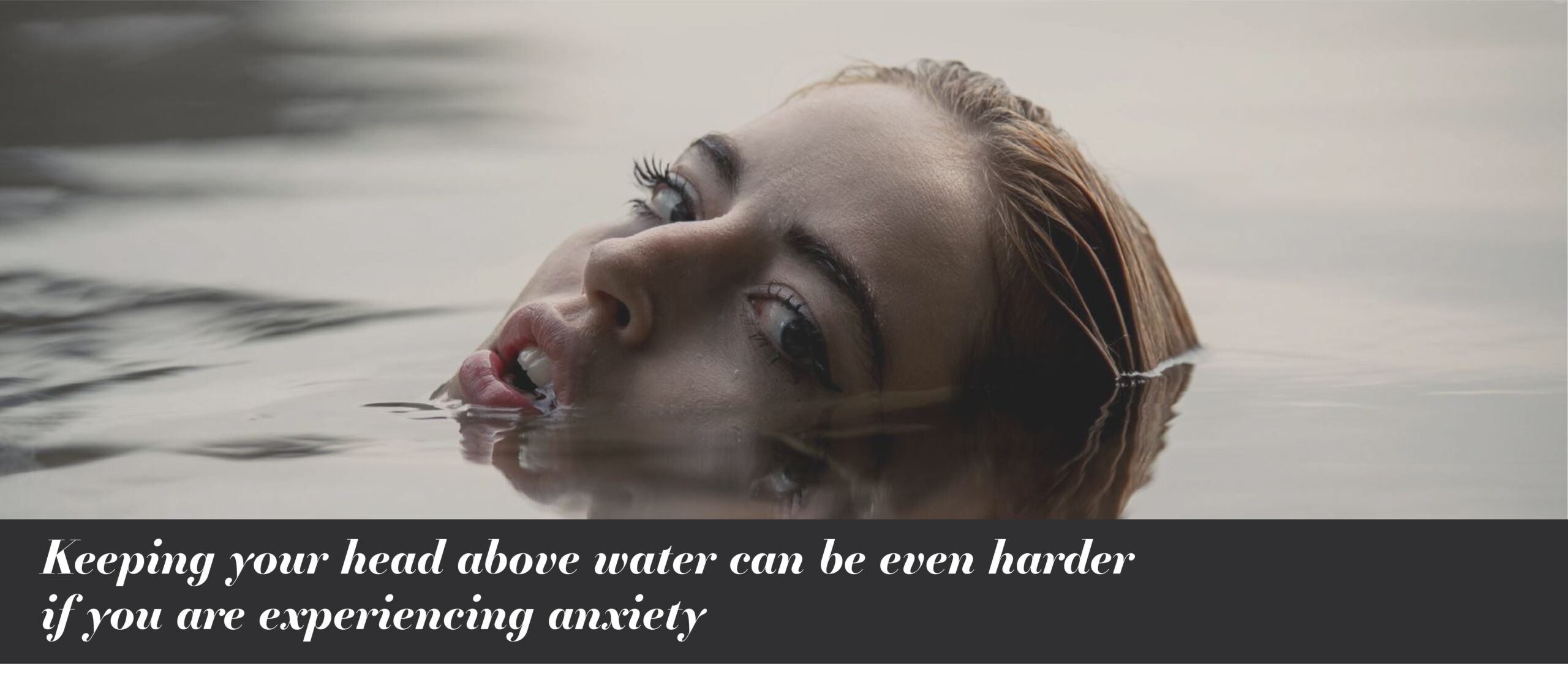Anxiety is a normal and vital part of our everyday lives as it can help us identify and respond to danger. Anxiety can be described as feelings of nervousness or apprehension that arise before and during life experiences such as interviews, presentations, or even the uncertainties arising from the current COVID-19 pandemic. There are also more persistent and emotionally distressing types of anxiety including generalized anxiety disorder, social anxiety, phobias, panic disorder, and post-traumatic stress disorder.
How Does Anxiety Develop?
Research shows some genetic predisposition to developing anxiety: If someone in your immediate or extended family experiences anxiety, you may be more likely to develop anxiety. Your life experiences also have a significant impact on anxiety development. For example, anxiety can develop in individuals who grew up in unstable home environments or who experienced a traumatic event such as a motor vehicle accident.
How Are Anxiety Disorders Diagnosed?
Family physicians, psychiatrists, or psychologists can diagnose anxiety disorders. Their diagnosis is informed by your self-reported symptoms and the results of physical tests used to rule out other medical conditions. Mental health professionals refer to the Diagnostic and Statistical Manual of Mental Disorders 5 as it outlines criteria that must be met in order to diagnose mental health issues.
Occupational Therapy and The Functional Impact of Driving Anxiety
Occupational therapists focus on how conditions like anxiety impact your everyday life. After a motor vehicle accident, feelings of anxiety about getting into a car and driving are normal. For some, these feelings disappear quickly, while others may experience more persistent anxiety. Individuals with driving-related anxiety may experience distress when walking towards the car, sitting as a passenger, or driving past the intersection where their accident occurred. Consequently, these situations are associated with unpleasant emotions, sensations, or thoughts that can motivate individuals to find ways to avoid driving, getting into cars, or taking specific routes. These unpleasant symptoms can lead to reduced participation in functional participation in activities that involve driving, and in turn, result in a sense of isolation, decreased health outcomes, and loss of a sense of self. The combined biological, psychological, social, and functional impact of anxiety is huge and may cause ripple effects in the various spheres of an individual’s life.
The most common symptoms of anxiety can be clustered into 4 different categories:
- Physical: Rapid heartbeat, shallow breathing, dizziness, sweat, muscle tension
- Thoughts: Overestimating danger, underestimating your ability to cope, worrying/catastrophizing, underestimating the help available
- Emotions/Mood: Nervous, on edge, anxious, panicky, irritable
- Behaviour: Avoidance or escape of anxiety-provoking situations, perfectionism or an attempt to control everything, safety behaviours (i.e., things we do to reduce our sense of risk of getting hurt in situations that make us anxious)
These symptoms affect your ability to cope with life stressors; your decisions on what activities or opportunities to engage in; the degree to which you engage in various self-care, productivity, or leisure activities; and ultimately, your perceived quality of life.
Sleep: Falling asleep and staying asleep can be problematic for people with anxiety. One’s worries or anxious thoughts can keep their brains awake and active, making it harder to achieve restorative sleep. Individuals may experience nightmares about things that make them anxious. As a result, they may feel tired and irritable, and/or report “brain fog” or low energy levels. This, in turn, can lead to decreased work or school performance and low mood.
Appetite: Individuals with anxiety can experience changes in their appetite, either eating too much or too little. This may be a behavioural manifestation of anxiety, but more research must be performed to understand why we experience appetite changes when we feel anxious.
Motivation: Anxiety impacts task completion and goal attainment differently depending on the person. Was there ever a time when you had to meet a big deadline and did not start the task until a few hours before? If you answered yes, then you were likely motivated to complete the task but were avoiding and procrastinating because of the anxiety the task causes. For many, anxiety can actually motivate individuals to get work done on time and maintain their focus on achieving their goals in high-pressure situations. So, anxiety is not always bad.
Reducing Your Risk of Developing Persistent Anxiety
As we discussed, anxiety has a huge impact on sleep, appetite, motivation, mood, and vice versa. This is why it is important to maintain good sleep hygiene habits and a well-balanced diet to obtain enough nutrients to fuel your brain and body and develop healthy ways of coping with stress. This may look like making time to do what you love and what energizes you, like painting, writing, yoga, spending time with friends and family, etc. Sometimes, simply talking about how you feel with a trusted friend can help. Research shows that regular aerobic exercise can also be an effective way of reducing stress and lowering your risk of developing anxiety.
Anxiety Management Techniques and Services
A holistic approach to anxiety management is crucial as anxiety impacts many of our life roles and behaviours. At Health Bound, we provide an array of services to help you better manage your anxiety:
- Psychological Program: We help clients to objectively look at the thoughts, behaviours, and feelings in anxiety-provoking situations. We also conduct Driving Anxiety Assessments for individuals who experience in-vehicle anxiety after a motor vehicle accident.
- Driving Reintegration Program: We provide personalized treatment and care plans for individuals experiencing driving-related anxiety.
- Occupational Therapy: We are trained to provide client-centred care using a biopsychosocial approach with a focus on the functional impact of anxiety. We can guide you through strategies to break down anxiety-producing tasks into smaller, more manageable goals, and other techniques to manage your anxiety.
Mindfulness is a skill that involves paying attention to the present moment with purpose, open curiosity, and non-judgement. There are different ways to practice mindfulness, from formal meditation to informally attending to the sensations you feel as you go about your day. Here are some exercises.
Calm, deep breathing helps tell your body that there is no actual danger present. Take a deep breath through your nose, breathing into your lower belly. Hold your breath for 2-4 seconds, then slowly breathe out through your mouth for about 4-6 seconds. Repeat until you feel calmer.
Progressive muscle relaxation teaches you how to relax your muscles. It involves first tensing up specific muscle groups in your body such as your neck and shoulders and then releasing the tension.
Imagery involves imagining a calming or peaceful scene in vivid detail. Close your eyes and think of a scene that relaxes you: a calm lake or a favourite childhood spot. What can you see, smell, taste, hear, and feel in your peaceful place?
Want to Learn More?
If you would like to learn more about anxiety and some self-management strategies, speak with your health provider and check out some of these resources:
Anxiety Resources and Fact Sheets: Anxietycanada.com
Anxiety Support Community on Instagram: instagram.com/dlcanxiety
Downloadable apps:
MindShift CBT: Provides tools based on Cognitive Behavioural Therapy to help individuals learn how to relax and be mindful.
Headspace: Provides meditation sessions on everything from esteem and sleep to focus and anxiety. This app provides free access to some meditation exercises from 2 to 20 minutes long.
MyLife Meditation: Allows users to check in with their emotions and provides videos on yoga, guided meditation, and acupressure. This app offers free access to selected exercises.
*Disclaimer: The resources provided here are intended for informational purposes only and are not intended to replace medical advice.
All photo credit in this blog goes to Niko Brück.
Hello!
My name is Annmarie Villanueva and I am an Occupational Therapist at Health Bound Health Network.
At Health Bound, I work with patients who experience a variety of conditions including concussion, traumatic brain injury, fractures, chronic pain, and more. In my work, I take a holistic approach in helping clients address the functional issues they face daily as a result of their injuries. I am particularly passionate about mental health and well-being: I will often build personalized and practical strategies for mood management into my clients’ treatment plans. During my free time I enjoy reading and writing. I hope that you have found this blog post helpful and encourage you to keep an eye out for the next one by connecting with Health Bound on social media!
Thank you for joining us this month! See you in the new year!










